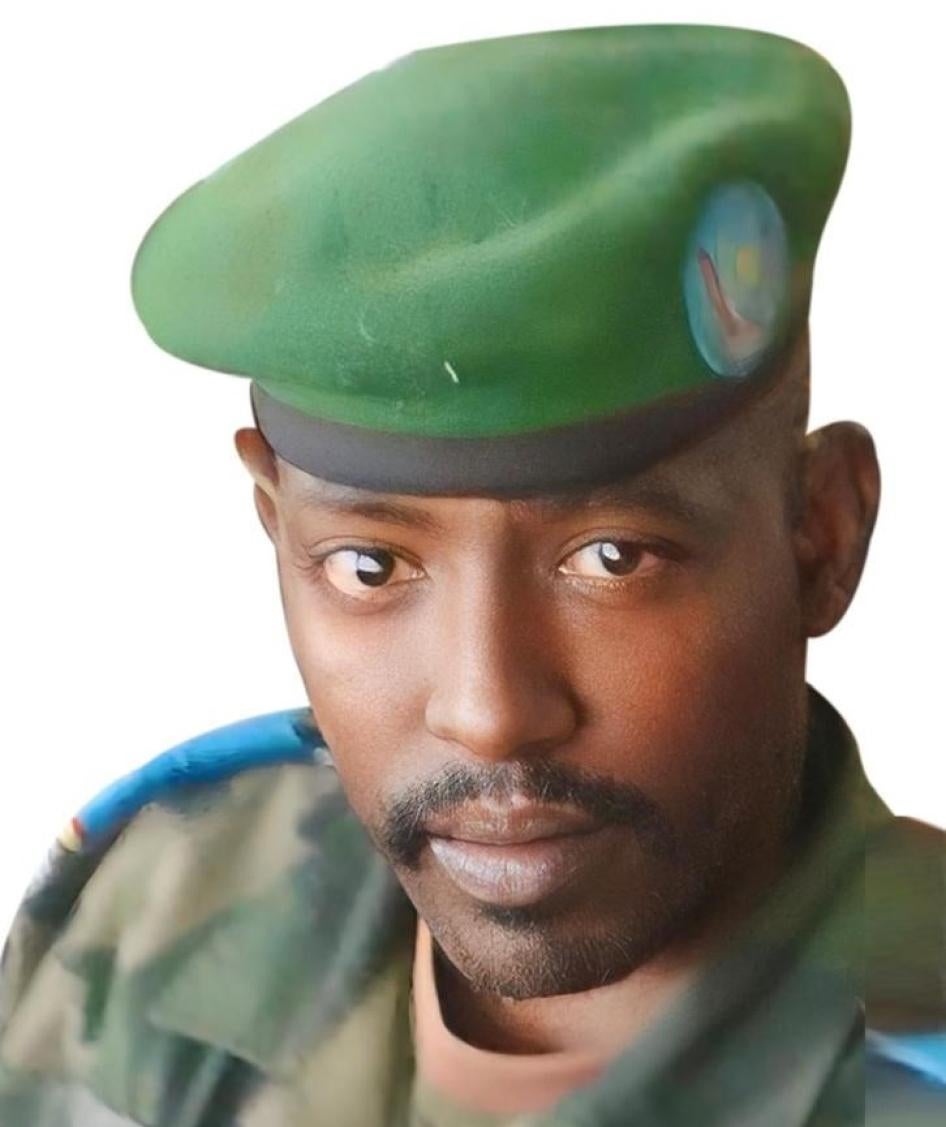(Goma) – A mob lynched a military officer in the Democratic Republic of Congo’s eastern city of Goma in an apparent case of ethnic hatred, Human Rights Watch said today. The Congolese government should appropriately prosecute all those involved and take broader steps to curtail ethnic violence in the country.
On November 9, 2023, a group of people attacked Lt. Patrick Gisore Kabongo, 42, a Munyamulenge, Congolese Tutsi from South Kivu province, whom they accused of being an M23 fighter because of his physical traits. Many people in Congo view the Tutsi community as supporters of M23, an abusive Rwanda-backed rebel group that resurfaced in late 2021.
“The mob killing of Lieutenant Kabongo is an apparent case of egregious hate-motivated violence,” said Thomas Fessy, senior Democratic Republic of Congo researcher at Human Rights Watch. “The Congolese government has condemned the murder and opened an investigation, but it needs to take action against growing ethnic violence in the country.”
In a widely circulated video, a mob surrounds Kabongo, who is standing with his face covered in blood. Another government soldier unsuccessfully tries to dissuade the mob from further attacking Kabongo. The intervening soldier’s voice is inaudible as the crowd chants “We are going to burn him!”
In another video, Kabongo is lying on the ground in agony in the middle of a street as the mob throws rocks at him. A young man approaches and slaps his face. Voices can be heard pleading to leave him alone while others accuse him of being from Rwanda.
“When I arrived, he was still alive but covered in blood and he had a tire around his neck and another one around his legs; I think they wanted to burn him,” Kabongo’s sister-in-law told Human Rights Watch. “I started to shout that he was not part of the M23 but people didn’t want to listen and some turned against me … They shouted at me and followed me, I had to jump on a moto-taxi to flee because they wanted to kill [me].”
On November 11, the Congolese army said it “regret[ted] the death of one of [its] elements,” and that “two suspects” had been arrested. On the same day, the communications minister and government spokesman, Patrick Muyaya, confirmed that Kabongo had been killed because of his “features” and said that President Félix Tshisekedi “condemned this despicable act.”
A judicial source and a Tutsi community leader said that one government soldier and four civilians had been arrested. However, three weeks later, the investigation stalled, and no one has either been charged or prosecuted.
Kabongo was enrolled in the Congolese military in 1997 as a child soldier, family members said. He was permanently wounded in his right arm during the first M23 offensive in 2012 and had since been officially recognized by the Congolese army as a war-wounded soldier who could no longer be sent into combat.
Human Rights Watch previously documented several instances in which people from an ethnic Tutsi background or simply perceived as Tutsi or Rwandan faced hostility, threats, and attacks by ethnic-based militia fighting the M23 and the communities they claim to represent. These instances include attacks against Tutsi farmers and their cattle and scores of racially motivated arrests.
Human Rights Watch has received more credible reports that, over the past year, Congolese authorities have arbitrarily arrested dozens of Tutsi men and women accused of collaborating with the M23 simply because of their ethnic background and that they remain detained in Goma, Bukavu, and Kinshasa.
“We are tired that our people are mistreated because of their traits,” the Tutsi community leader said.
The authorities should impartially investigate alleged cases of people being arrested solely because of their ethnicity and release them immediately without charge, Human Rights Watch said.
Between February and April, some Congolese Tutsi faced violence and discrimination during the voter registration process because of their ethnicity. With elections scheduled on December 20, the authorities should ensure that everyone can vote without fear of discrimination or intimidation on ethnic grounds, Human Rights Watch said.
Congolese authorities should work with minority communities to develop effective measures to provide better protection and identify and address problems before they result in criminal offenses. The government needs to send a clear message to Congolese security forces that they need to respond promptly and impartially to prevent or stop hate-motivated acts of violence or intimidation.
Ensuring accountability for all those responsible for ethnic violence, including the involvement of officials, should be a government priority.
“Public condemnation alone will not prevent future hate crimes,” Fessy said. “The Congolese authorities should take serious steps to effectively address violence and intimidation that are rooted in hate and discrimination.”








